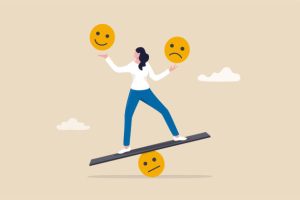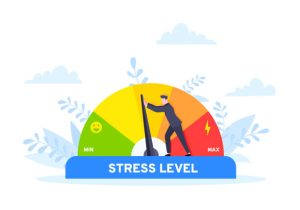Understanding and Managing Stress: A Comprehensive Guide
Understanding and Managing Stress: A Comprehensive Guide

In today’s fast-paced and demanding world, stress has become an unavoidable aspect of modern life. Whether it’s related to work, relationships, finances, or personal challenges, it can impact us all. While it is a natural response designed to protect us from danger, prolonged or overwhelming it can have adverse effects on our physical, emotional, and mental well-being.
This article aims to explore the concept of it, its causes, symptoms, effects, and most importantly, effective strategies to manage and cope with it.
-
what is stress
It is a physiological and psychological response that occurs when we face demands, challenges, or threats, known as stressors. These stressors trigger the body’s “fight or flight” response, releasing hormones like cortisol and adrenaline. In small doses, it can be beneficial, helping us perform under pressure and stay alert in dangerous situations. However, when it becomes chronic or excessive, it can lead to various health issues and significantly impact our overall quality of life.
-
Types of Stress
There are different types of stress that individuals may experience:
a) Acute:
This is short-term stress that arises from specific events or situations. For example, feeling stressed before a job interview or an exam.
b) Episodic:
Some people experience acute stress frequently due to their personality traits, lifestyle, or circumstances. They may always feel overwhelmed and struggle to cope with everyday challenges.
c) Chronic:
Long-term stress results from ongoing stressors, such as financial difficulties, strained relationships, or job dissatisfaction. Chronic stress is often the most damaging type of stress and requires careful management.
-
Causes of Stress
it can stem from a wide range of sources, including:
a) Work-related:
Job pressures, deadlines, high workload, and conflicts with colleagues can contribute to it.
b) Personal:
Relationship problems, family issues, and major life changes like moving or the loss of a loved one can be significant stressors.
c) Financial:
Concerns about money, debt, and financial stability can cause chronic stress.
d) Environmental:
Factors such as noise, pollution, and overcrowding can impact stress levels.
e) Health-related:
Chronic illnesses, medical treatments, and concerns about one’s health can also be stress-inducing.

-
stress symptoms
It can manifest in various ways, affecting different aspects of our lives. Common symptoms of it include:
a) Physical symptoms:
Headaches, muscle tension, fatigue, sleep disturbances, digestive problems, and a weakened immune system.
b) Emotional symptoms:
Anxiety, irritability, mood swings, restlessness, and feelings of being overwhelmed.
c) Cognitive symptoms:
Difficulty concentrating, memory issues, racing thoughts, and reduced decision-making abilities.
d) Behavioral symptoms:
Changes in appetite, social withdrawal, increased alcohol or drug use, and neglecting responsibilities.
-
The Effects of Chronic Stress
Chronic stress can have far-reaching consequences on both physical and mental health:
a) Cardiovascular issues:
Prolonged stress is linked to high blood pressure, heart disease, and an increased risk of stroke.
b) Mental health disorders:
Chronic stress can contribute to the development of anxiety disorders, depression, and other mental health conditions.
c) Digestive problems:
it can disrupt digestion, leading to issues like irritable bowel syndrome (IBS) and stomach ulcers.
d) Weakened immune system:
Long-term stress weakens the immune system, making individuals more susceptible to infections and illnesses.
e) Sleep disturbances:
It can disrupt sleep patterns, leading to insomnia and insufficient rest.

-
Coping with Stress
Effectively managing it is essential for maintaining overall well-being. Here are some strategies to cope with stress:
a) Exercise:
Regular physical activity releases endorphins, which are natural mood lifters and help reduce stress.
b) Mindfulness and meditation:
Practicing mindfulness and meditation techniques can calm the mind and promote relaxation.
c) Time management:
Prioritize tasks, set realistic goals, and avoid over-committing to prevent feeling overwhelmed.
d) Social support:
Seek support from friends, family, or support groups to share your feelings and experiences.
e) Healthy lifestyle:
Eat a balanced diet, limit caffeine and alcohol intake, and get enough sleep to support your body’s stress response.
f) Relaxation techniques:
Try deep breathing exercises, progressive muscle relaxation, or engaging in hobbies that bring joy.
g) Cognitive-behavioral techniques:
Challenge negative thought patterns and replace them with more positive and constructive ones.
h) Seek professional help:
If it becomes unmanageable or starts affecting your daily life, consider seeking help from a therapist or counselor.
-
Stress Reduction in the Workplace
Employers can play a crucial role in reducing workplace stress by implementing various strategies:
a) Encourage work-life balance:
Offer flexible working hours and remote work options, promoting a healthy work-life balance.
b) Provide resources:
Offer its management workshops, counseling services, and employee assistance programs.
c) Improve communication:
Foster open communication and encourage employees to express concerns or suggestions.
d) Address workloads:
Evaluate workloads and distribute tasks evenly to prevent excessive stress on employees.
e) Recognize achievements:
Acknowledge and appreciate employees’ efforts and accomplishments to boost morale.

-
When to Seek Professional Help
While it is a common experience, persistent or overwhelming stress may require professional intervention. If you notice that it is interfering with your ability to function, affecting your relationships, or causing significant distress, consider seeking help from a mental health professional. They can provide guidance and support to help you better manage it and improve your well-being.
Conclusion
It is an inevitable part of life, but it doesn’t have to control us. By understanding the causes, symptoms, and effects of it, and adopting effective coping strategies, we can navigate life’s challenges more effectively. Remember that seeking support and help when needed is a sign of strength, not weakness. Embracing a balanced lifestyle, practicing self-care, and nurturing strong social connections can empower us to better manage it and lead happier, healthier lives.




